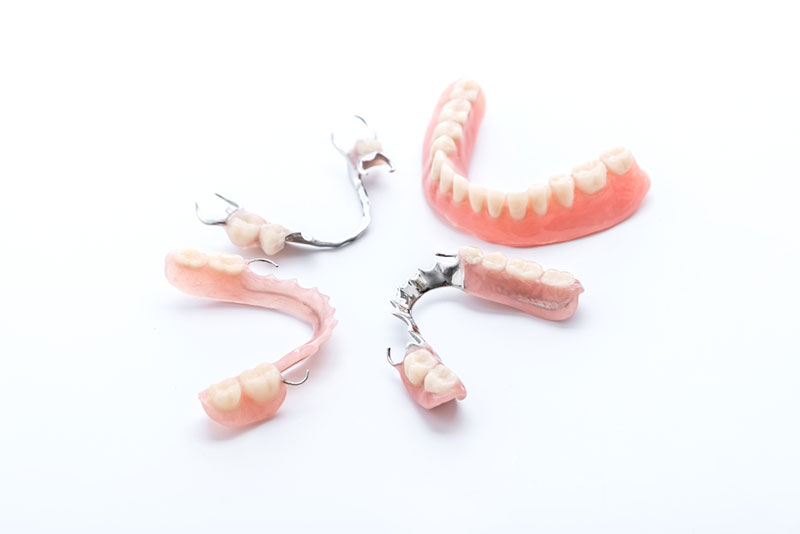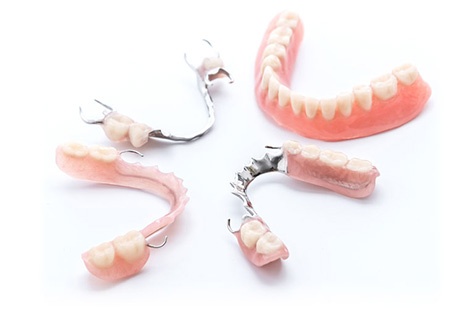
My husband must be having some serious issues with his dentures. He doesn’t seem bothered by it, but neither will he wear them. He got a new set in March and that was an ordeal by itself. Since then the dentures have been nothing but trouble. 2 nights ago, we were invited out to dinner with close friends. I begged Don to wear his dentures and he reluctantly agreed. I don’t know why he puts up such a big fuss because he looks so handsome with them. We started the meal and everything was fine, but no more than five minutes into eating, he pulled them out and put them on the table. Our friends were polite and didn’t say anything, but their eyes showed that they were uncomfortable. Don left the dentures on the table during the entire dinner. I talked to him about it on our way home, and he insisted that although I think the dentures look great, they don’t feel great. I don’t think he has worn them enough to know how they feel. How can I get my husband to wear his dentures? Thanks, Anya
Dear Anya,
It can be difficult for people to adjust to the change, and wearing dentures can be a difficult transition. There are several issues people might experience with dentures.
Some Causes of Discomfort with Dentures
Too Tight/High Spots: Sometimes a new prosthesis can be too tight in certain areas or have high spots that cause pressure and make them uncomfortable to wear. The dental office should have run tests to see how the dentures fit and felt and made adjustments accordingly. If your husband prefers not to complain, he may not have mentioned these spots to the office, but they could be causing serious discomfort. If so, your best bet is to get him back to the office so they can adjust it.
Too Loose: When teeth are extracted, the jawbone in those areas begins to shrink, which can make a prosthesis feel too big. In the early stages of healing, there’s also some swelling. As swelling subsides, a prosthesis might not fit correctly. Dentists can make adjustments and reline the prosthesis for a better fit.
Movement/Sore Spots/Poor Fit: Poor fit or movement can and should be adjusted. If these issues aren’t addressed, they can cause serious pain and even injury.
Excess Saliva: When there is a foreign object in your mouth, it stimulates saliva. People new to wearing an oral prosthesis often complain about excess saliva, but as they wear it more, saliva production reduces. The key is to regularly the oral appliance.
Difficulty Speaking: It takes time to get used to talking while wearing dentures. If your husband has difficulty speaking with dentures, it can help to wear them at home and practice speaking with them.
Pushing Out/Falling Out: Some people are inclined to push their dentures out with their tongue. Others experience difficulty with suction for the upper denture. If the prosthesis is otherwise comfortable, using adhesive will be helpful. There are many different styles and brands of adhesive, so it’s a good idea for your husband to try a few until he finds one he prefers.
Any of these factors, and more, could be contributing to your husband’s discomfort. It may be better to discuss the issue with him and let him know you’re concerned. A visit or two to the dentist for adjustments should be able resolve the issue. If he continues to have discomfort, consider seeing a prosthodontist, a dentist who specializes in replacing missing teeth. Prosthodontists can help with more complicated issues and will be able to determine if your husband is a candidate an implant-supported denture, which helps dentures fit and feel better.
This blog is sponsored by Naperville denture specialist Dr. Anthony LaVacca.

































